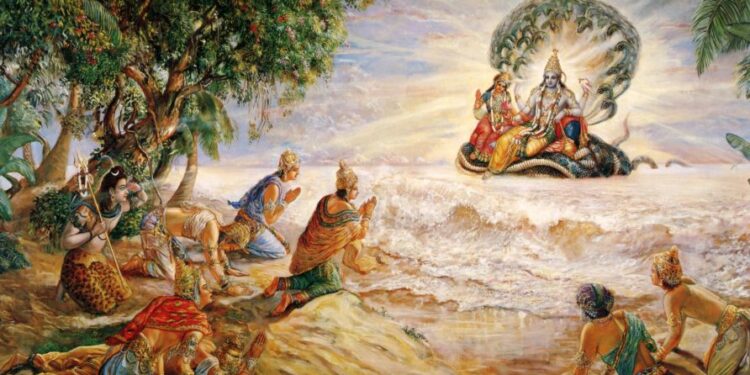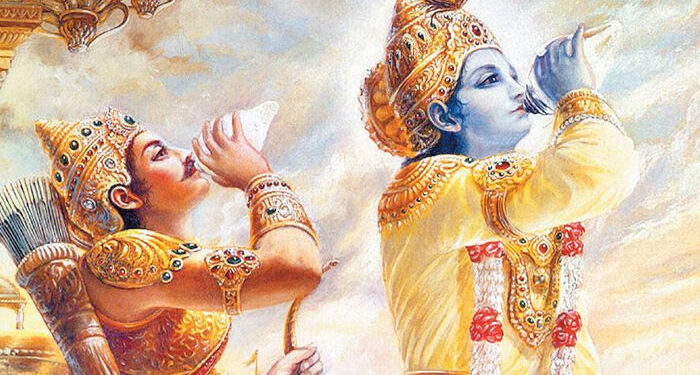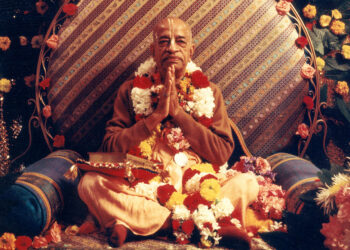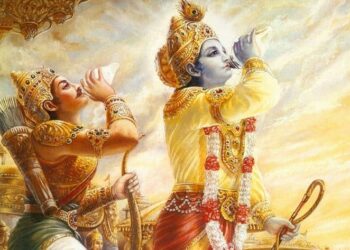Vasudeva thus requested Kaṁsa not to be envious of his newly married sister. One should not be envious of anyone, because envy is the cause of fear both in this world and in the next, when one is before Yamarāja (the lord of punishment after death). Vasudeva appealed to Kaṁsa on behalf of Devakī, stating that she was his younger sister. He also appealed at an auspicious moment, at the time of marriage. A younger sister or brother is supposed to be protected as one’s child. “The position is overall so delicate,” Vasudeva reasoned, “that if you kill her, it will go against your high reputation.”
In this way Vasudeva tried to pacify Kaṁsa by good instruction as well as by philosophical discrimination, but Kaṁsa was not to be pacified because his association was demoniac. Because of his demoniac association, he was a demon, although born in a very high royal family. A demon never cares for any good instruction. He is just like a determined thief: one can give him moral instruction, but it will not be effective. Similarly, those who are demoniac or atheistic by nature can hardly assimilate any good instruction, however authorized it may be. That is the difference between demigods and demons. Those who can accept good instruction and try to live their lives in that way are called demigods, and those who are unable to take such good instruction are called demons.
Failing in his attempt to pacify Kaṁsa, Vasudeva wondered how he would protect his wife, Devakī. When there is imminent danger, an intelligent person should try to avoid the dangerous position as far as possible. But if, in spite of endeavoring by all intelligence, one fails to avoid the dangerous position, there is no fault on his part. One should try his best to execute his duties, but if the attempt fails, he is not at fault.



















